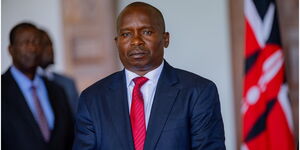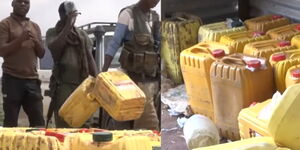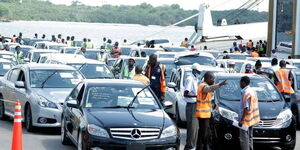Companies have warned of elevated fuel prices in the first quarter of 2024 despite a decline in international oil prices in December 2023.
In a CEO's survey by the Central Bank Of Kenya (CBK), various firms drawn from different sectors of the economy projected that fuel prices would continue to be high owing to the depreciating Shilling.
Fuel products are usually imported into the country in dollars, and with the Shilling depreciating further, the prices are projected to be elevated.
Currently, a Dollar exchanges at Ksh157.50, nearly a Ksh1 rise from the December 28, 2023 rates which CBK put at Ksh156.06.
Consequently, the firms indicate that there could be more ramifications for Kenyans concerning the cost of living and employment opportunities.
"Firms in the agriculture sector expect that high fuel prices could persist into the first quarter of 2024, hence continued high input costs. Consequently, firms are likely to scale back to keep overhead costs in check.
"Similar sentiments were expressed by businesses in the manufacturing sector. Respondents expect that continued increases in fuel prices will keep production costs elevated, thereby continuing to exert pressure on sales prices," read the statement in part.
Meanwhile, the Energy and Petroleum Regulatory Authority (EPRA) is expected to release the January pump prices in 11 days. Currently, in Nairobi, motorists pay Ksh212.36 for petrol, Ksh201.47 for diesel, and Ksh199.05 for Kerosene per litre.
Notably, in the December review, Petrol decreased by Ksh5, Diesel by Ksh2, and Kerosene by Ksh4.01 after the government reintroduced the fuel subsidy programme.
According to EPRA, the subsidies were implemented by the government to cushion Kenyans from higher prices. At the time, the high prices were also attributed to the depreciating shilling.
Notably, EPRA also uses a parallel exchange rate from that set by the CBK. For instance, CBK's rate for November was at an average of Ksh153. However, EPRA detailed that the dollar traded at Ksh157.52 in its December pump calculations.
"The price of diesel has been cross-subsidized with that of super petrol to further cushion the economy, the government has opted to stabilise the resultant diesel price. Government through the National Treasury has identified resources within the current resource envelope to compensate Oil Marketing Companies," EPRA stated then.












